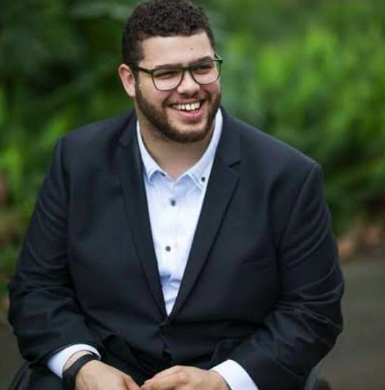War Powers Should Rest With Parliament: An Interview With Senator Jordon Steele-John

Then PM Tony Abbott withdrew Australia’s last combat troops from Afghanistan in late 2013. It marked the end of our nation’s longest engagement in a specific conflict. However, Australian troops were still deployed to the country in a training capacity up until a little over a month ago.
Initially sent in back in 2001, by the time Abbott pulled the troops out of the Central Asian nation, the fact that ADF soldiers were still active in Afghanistan had faded somewhere into the background of public awareness, as had any justifications for them being there.
Fast forward seven years and now we have the revelations of the Brereton report. Released in late November, it documents the alleged war crimes of Australian SAS troops – 39 murders to be exact – along with a “warrior culture” of regularly breaching international law and covering it up.
So, what we’re left with is Australians being sent into conflict zones without reason. And as the Afghan war dragged on and its futility became more apparent on the ground, the barbarism grew to the point that the best trained soldiers morphed into killers of the innocent and the unarmed.
And all this occurred based on a decision made by former prime minister John Howard and his 2001 cabinet taken literally years before any of the documented atrocities in Brereton took place.
Power to the people
In the wake of Brereton, Australian Greens Senator Jordon Steele-John introduced a bill before parliament that would take the power to send troops into foreign battles away from the PM and cabinet, and place it up for debate in parliament.
Introduced on 7 December, the Defence Amendment (Parliamentary Approval of Overseas Service) Bill 2020 would insert section 29A into the Defence Act 1903 (Cth), requiring both houses to pass a resolution permitting troops to be sent overseas before any deployment takes place.
This is not the first attempt to enact what’s commonly referred to as a War Powers Act. The Australian Democrats introduced legislation in 1985, 1988 and 2003, while the current bill coming from the Greens is that party’s third attempt at bringing about the change.
A key reform that these amendments make is not only would the decision of a few become a debate of the many, but in opening up war powers to parliament, the public then becomes engaged in the discussion as to whether loved ones should be sent overseas to war.
Breaking colonial shackles
Australia tends to pride itself on being an open democracy. However, the power to send citizens to fight in foreign theatres of war resting solely with the PM and cabinet is based on a centuries-old British royal practice that saw the monarch alone declaring war.
Indeed, as Steele-John made clear during his second reading speech on the bill, “Australia is one of the few remaining democracies that can legally deploy its defence forces into conflict zones without recourse to the parliament.”
Sydney Criminal Lawyers spoke to Australian Greens Senator Jordon Steele-John about the futility of war, the changes his legislation would bring to future ADF engagements and what would be different in the present if the initial war powers bill before parliament was passed in the mid-1980s.

Last week, you introduced your Defence Amendment (Parliamentary Approval of Overseas Service) Bill into parliament. It comes on the back of the release of the Brereton report into alleged Australian special forces perpetrated war crimes in Afghanistan.
So, firstly, Senator Steele-John, would you say the revelations of the report came as a surprise?
To be honest with you, no they did not. I am a deep believer in peace and nonviolence. I believe in nonviolent solutions to conflict situations.
I believe in nonviolent conflict resolution because my historical analysis leads me to the conclusion that war is never the answer, and that it inevitably involves atrocities upon innocent people.
In some ways, what I took from the Brereton report, and what it gives us the opportunity to do, is look into the face of war and say never again. And that’s what my bill is about supporting us being able to do.
Since 1901, the prime minister and cabinet have made the decision as to whether Australian troops should be deployed overseas to fight in a foreign conflict.
What is the issue with continuing on with this arrangement, especially in the wake of Brereton?
What we’ve seen in both the wars in Iraq and Afghanistan is that the executive has lost the ability to make the judgement call.
I would argue that it has never shown a capacity to be able to make the correct judgement call when it comes to deploying armed forces overseas.
The case for conflict, the case for engagement, the risks to our personnel and to civilian populations have never been weighed properly before the parliament.
We look at Iraq and Afghanistan as one war based on a lie and the other driven by a misguided humanitarian calculation.
We see that there’s an urgent need for community ability to examine the case, and to scrutinise the arguments that are being made by the defence apparatus and by the political establishment.
Your Parliamentary Approval of Overseas Service Bill would insert section 29A into the Defence Force Act 1903.
This would provide that instead of the executive making the final decision on deploying Australian troops overseas, the decision would have to be debated in both houses of parliament.
What sort of difference would this make to the current arrangement?
Mechanically, it would mean that the prime minister would have to make a case to parliament that detailed the legal status of the proposed deployment, the duration, the drawdown on personnel and other issues as well.
These would have to be detailed to the parliament, and through the department to the community.
If a deployment was taken, the defence minister would then be required to inform the parliament every three months as to the ongoing status of those criteria.
So, it would enable a far greater extent of public scrutiny of the case for a deployment, and should that be resolved in the affirmative, exactly how that case is going.
It would enable us to also put in place the provisions necessary for veterans, as they return from any such deployment as well.
So, this arrangement would lead to the public having some input in deploying troops?
Absolutely, it would. The public through their MPs would have the right and opportunity to examine and scrutinise the case made for deployment.
At the moment, this is something the prime minister and the cabinet just gets to tick off on. And that’s led us into the terribly misguided use of our armed forces for the past 20 years.
Brereton shows us exactly where that leads.
Your bill is based on similar legislation introduced into parliament in 1985 by Australian Democrats Senator Colin Mason.
If the Mason legislation had been passed back then, do you think there might have been some different decisions made in terms of when Australian troops have been deployed since?
Absolutely. It is fair to say that there’s a significant likelihood that we would not have ended up going into Iraq, nor would we have gone into Afghanistan. And since it was 1985, nor would we have participated in the Gulf War.
All of our engagements since the Second World War – with the exception of potentially some of the actions that we took around East Timor – have proven to be deeply misguided wastes of human life, wastes of public resources, and morally and strategically unjustifiable.
It would have given us the opportunity to see through the smog of patriotism, marshal splendour and the outright lies that were told to the public in the case of Iraq. And it would have prevented us from being involved in these conflicts.
Mason started the push for a War Powers Act back in 1985. The Democrats pushed for the change twice more. While the Australian Greens have attempted to bring about the change in 2008 and 2014.
Senator Steele-John, this has been going on for 35 years. Why are parliamentarians so resistant to making this change? What is the benefit of keeping this power in the hands of the executive?
The parliamentarians from the major parties are resistant to this change, because every single one of them believes that one day they will be a member of the executive, and when they’re a member, they don’t want to be held accountable or to be scrutinised.
They want to answer a call from the Americans, demanding that we jump with an obedient, “How high, and would you like a backflip included?”
That’s what drives this resistance, as well as a ridiculous view that it might in some way make us exposed or unable to counter any incursion into our territory, which it absolutely wouldn’t.
This is resistance on behalf of the major parties. It is all about power and their desire to retain power, so they can make the snap judgments that they feel their predecessors have had the opportunity to make, and in doing so, make themselves feel like big men, which is an unacceptable basis for policy making.
And finally, a recent post-Brereton Roy Morgan poll found that 83 percent of Australians would prefer that parliament votes on foreign deployment.
So, what does it mean for the wider community if the power remains in the hands of the few going into the future?
The danger of maintaining the status quo is that we continue to see ourselves following America into wars of regime change, wars without end or purpose or strategy or plan.
We’re seeing our current defence establishment wrap itself closer and closer to the American defence intelligence establishment.
The danger is unless we inject a good dose of public scrutiny in line of sight, we will at the beginning of this new decade repeat the mistakes of the past two, which was just to obediently follow America along.







